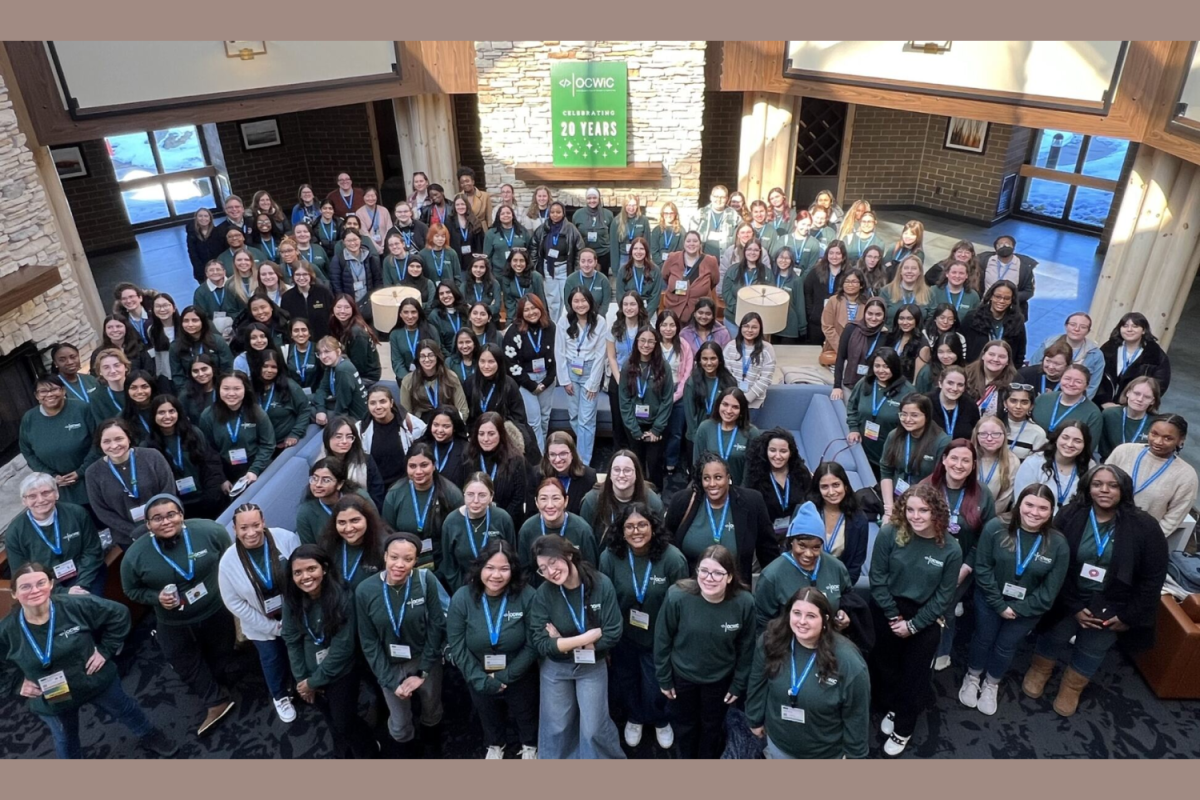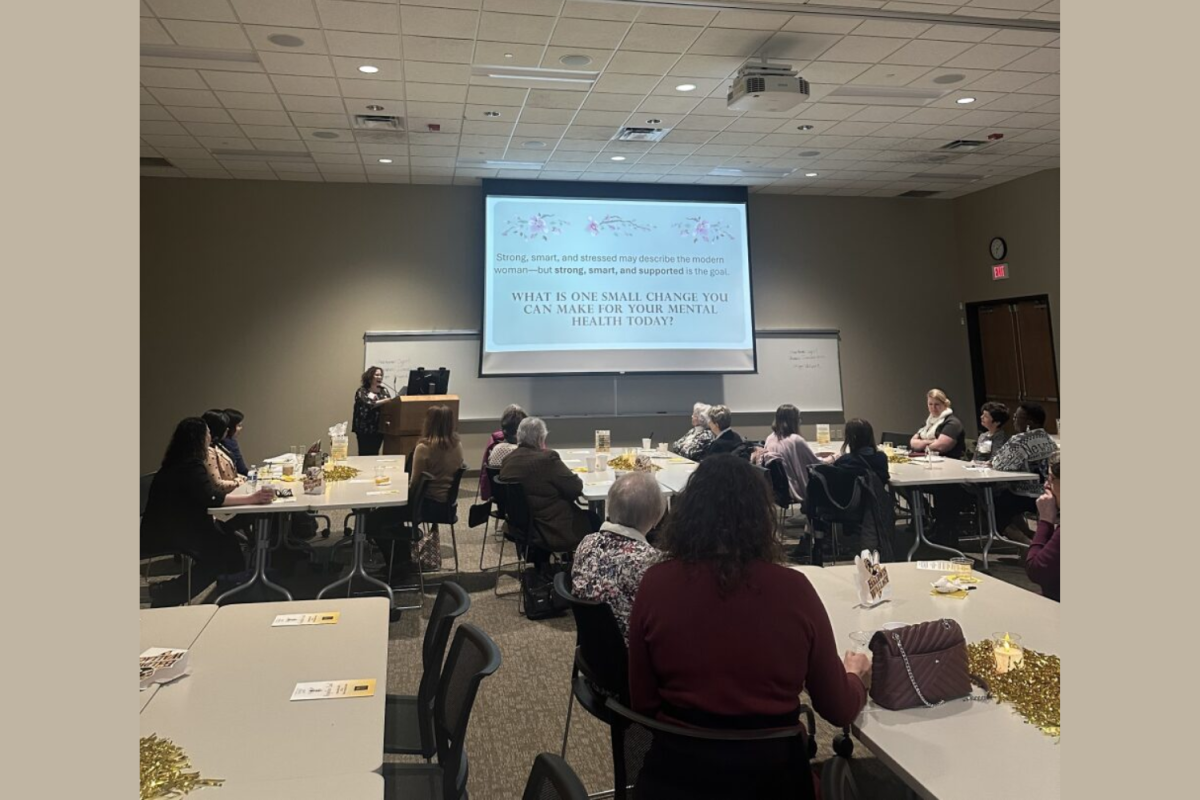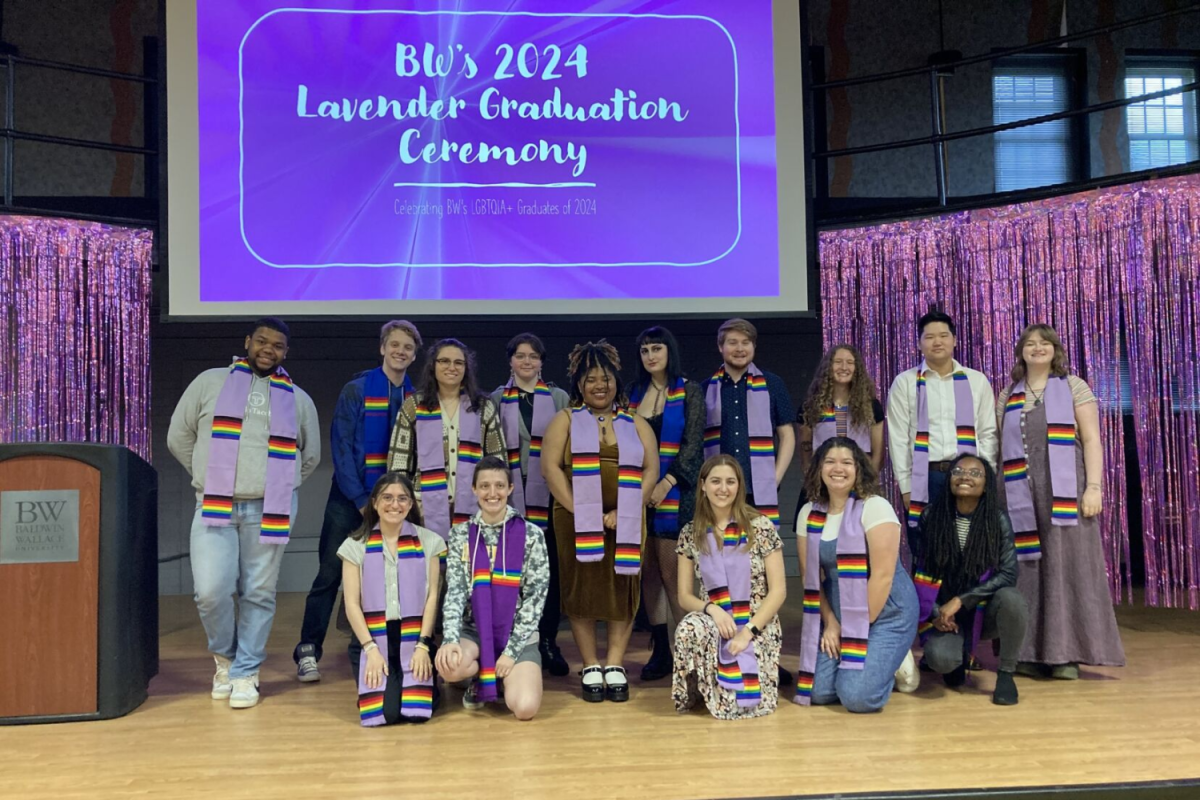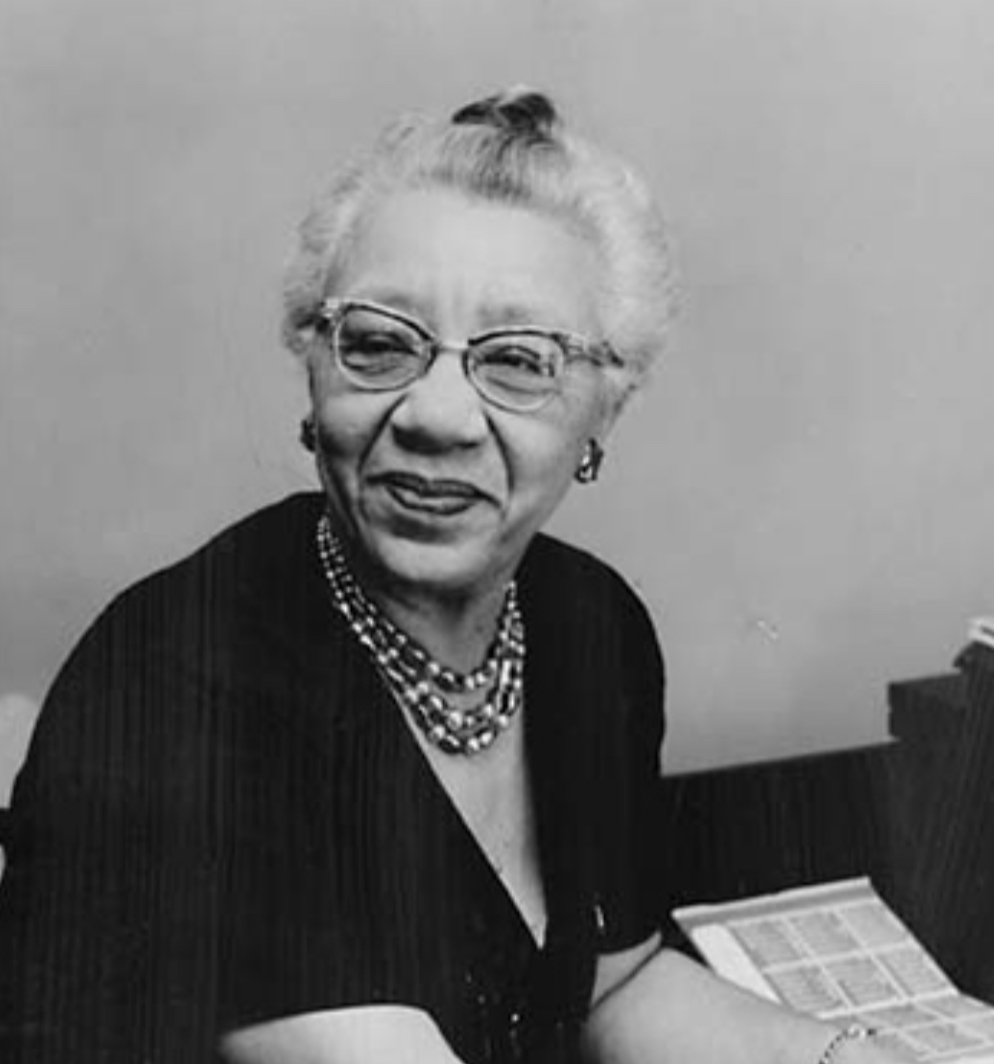Nine members of Baldwin Wallace University’s student chapter of The Association for Computing Machinery’s Council on Women in Computing attended the Ohio Celebration for Women in Computing Conference, held in Huron, Ohio.
Three BW students gave presentations at the conference, three attended a leadership summit hosted by the event, and two served as student assistants, arriving early to help prepare the conference venue for attendees.
Jenna Shepard, a junior business information systems major, worked as a student assistant at the conference.
“It was a really great opportunity,” Shepard said. “Specifically, because, in most of my classes, it’s probably 25 guys and maybe three or four girls, and it was primarily mostly women at this conference.”
The trip was led by BW ACM-W’s faculty advisor Rachelle Hippler. Hippler also serves as the Chair of the ACM-W Professional Chapter of Ohio and the Sponsorship Chair for the OCWiC Conference.
The event was attended by mainly women and was a unique networking and community-building opportunity for students, faculty, and professionals from all over Ohio. Hippler estimates that this year, about 260 people in total attended the OCWiC Conference, and all but four were women.
“Just for these couple days at the conference,” Hippler said, “they felt really comfortable. They could be themselves.”
Hippler said that many of the students had different motivations for pursuing a career in computing, including the salary of jobs in the field.
“It’s okay to do it for the money, you make a lot of money in this field, so why not? Why should guys get all the money?” Hippler said.
Shepard had the chance to talk with one of the OCWiC Conference panelists, a professor at Ohio State University, about ethics and diverse perspectives within the field of computer science. Shepard said that ethics and diversity are especially important in the field of AI.
“You can’t have ethics in computer science unless you know what those ethics are,” Shepard said. “What trains AI? A lot of data. Where are you getting that data from? It depends on the demographics of the people that make those systems, and you can’t have diverse demographics if everybody making those data systems is a white man.”


































